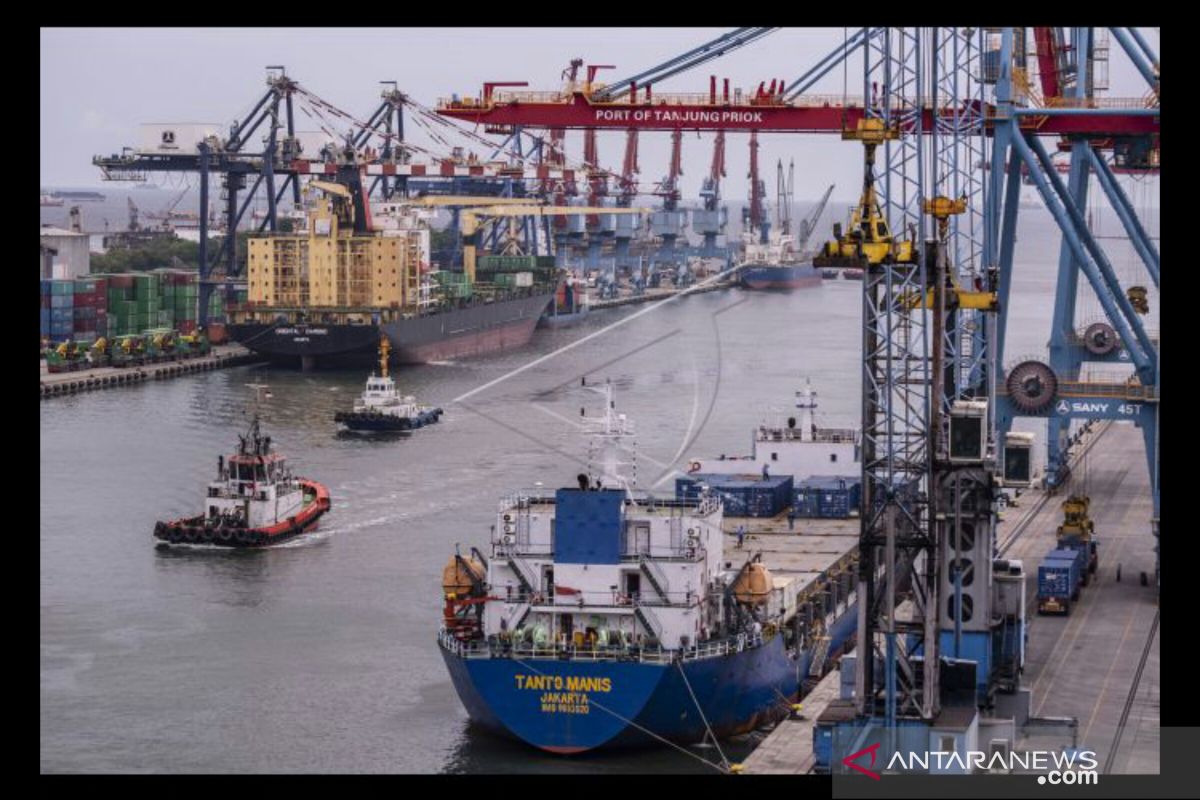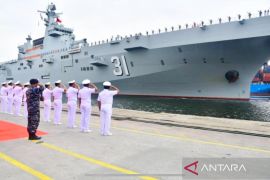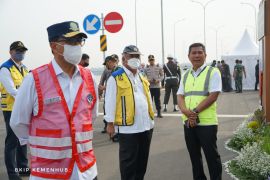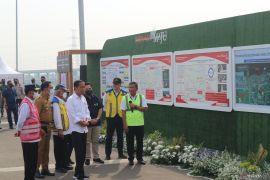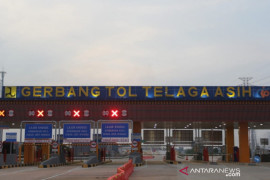One of the ports that has worked continuously to bring about improvements to become the best is Tanjung Priok, which aspires to become a Southeast Asian hub.
However, it is no easy task to make Tanjung Priok Port a key hub for sea transportation in Southeast Asia, for which a long road still needs to be treaded, despite Tanjung Priok Port currently being ranked 26th on the list of the world's busiest ports.
Moreover, Tanjung Priok Port's container capacity has continued to expand, from earlier six million twenty-foot equivalent units (TEUs) or equivalent units of twenty feet per year, to currently seven million TEUs annually.
The Jakarta International Container Terminal (JICT) is the operator in charge of managing and developing container terminals in Tanjung Priok, including realizing the dream of transforming Tanjung Priok into Southeast Asia's hub port.
In 2018, President Joko Widodo had officiated the departure of a ship, with a capacity of 10 thousand TEU containers, of exports from the JICT and taken directly to Los Angeles, the United States.
This is testament to the fact that Indonesia has served large vessels with direct calls, not only to the United States but also to Africa, Australia, Europe, and, of course, to Asian countries, without going through Singapore.
The potential for ease of effectiveness in destination markets boosts the cost efficiency and logistics time of international trade, without the need to rely on transhipment activities in Singapore and Malaysia
Unifying strength
In the face of increasingly stiff global competition, JICT Deputy Managing Director Riza Erivan remains committed to unifying all strengths in JICT in a bid to make Tanjung Priok a hub port in Southeast Asia.
Various hurdles faced by JICT in realizing this dream are aplenty, right from state losses to employee layoffs.
Erivan acknowledges that pursuing the goal to become a Southeast Asian hub was indeed challenging, as it necessitated the corporation to demonstrate high credibility and maintain a conducive investment climate in Indonesia.
Ricky Virona Martono, trainer of executive development services - PPM Manajemen, highlighted the importance of preparing container loading and unloading technology for docking along with putting in place an efficient bureaucracy that aims to attract ship companies in order to make Tanjung Priok a hub.
Erivan wrote in Swa Magazine that effective transportation access from the port to the point of delivery -- factories, warehouses, and consumer locations -- is a must to ensure that goods can be sent directly and help to reduce dwell time at the port.
In its endeavor to become an important port for the national economy, Tanjung Priok Port cannot indeed stand alone and should forge cooperation with various parties for support and become complementary to one another.
The cooperation encompasses the transfer of technology, development of human capital, strengthening of international networks, and endorsement of stakeholders. Cooperation is paramount to improving Indonesia's standing in the global market.
Undeniably, the varied efforts made have not been futile, with JICT, the operator of Tanjung Priok Port, winning the award of the best container terminal in Asia in the category of below four million TEUs per year since 2011.
As the best port operator, JICT has also been entrusted with sending its employees to provide training for ports and terminal container services under Hucthison Ports Holdings to Oman and Tanzania.
Tripping cases
This company had come under the radar over a case related to indications of corruption at JITC, resulting in state losses reaching Rp4.08 trillion.
However, the management has ensured that the company's operations remain undisrupted and business activities continue as normal. At the same time, investigation into the case continues in parallel.
As is known, in 2014, both shareholders had reached an agreement to extend a cooperation contract between Pelindo II and Hutchison Port Holdings (HPH). However, with this demand, of course, the government is the final authority to take a decision.
Should this contract be extended, it would certainly offer benefits to Indonesia. For instance, the contract stipulated that the JICT has to pay US$ 85 million in rent annually to Pelindo II, which will undoubtedly have a major influence on the country.
The government should be able to capitalize on this acquisition to construct new ports at various locations in Indonesia to ensure equitable distribution and development reaching the remote areas along with the opening of new job opportunities.
Erivan admitted that the company had a lot of homework to do to make Indonesia a hub for container terminals in Southeast Asia.
He expressed optimism that by working with all parties -- the government, management, employees, and vendors, including the community -- JICT was able to contribute significantly to realizing these ideals.
In the face of the ongoing problem, Indonesia can become an unchallenged leader among marine transport hubs in Southeast Asia through hard work and treading along a lengthy, even winding journey. EDITED BY INE
Editor: Fardah Assegaf
Copyright © ANTARA 2019
